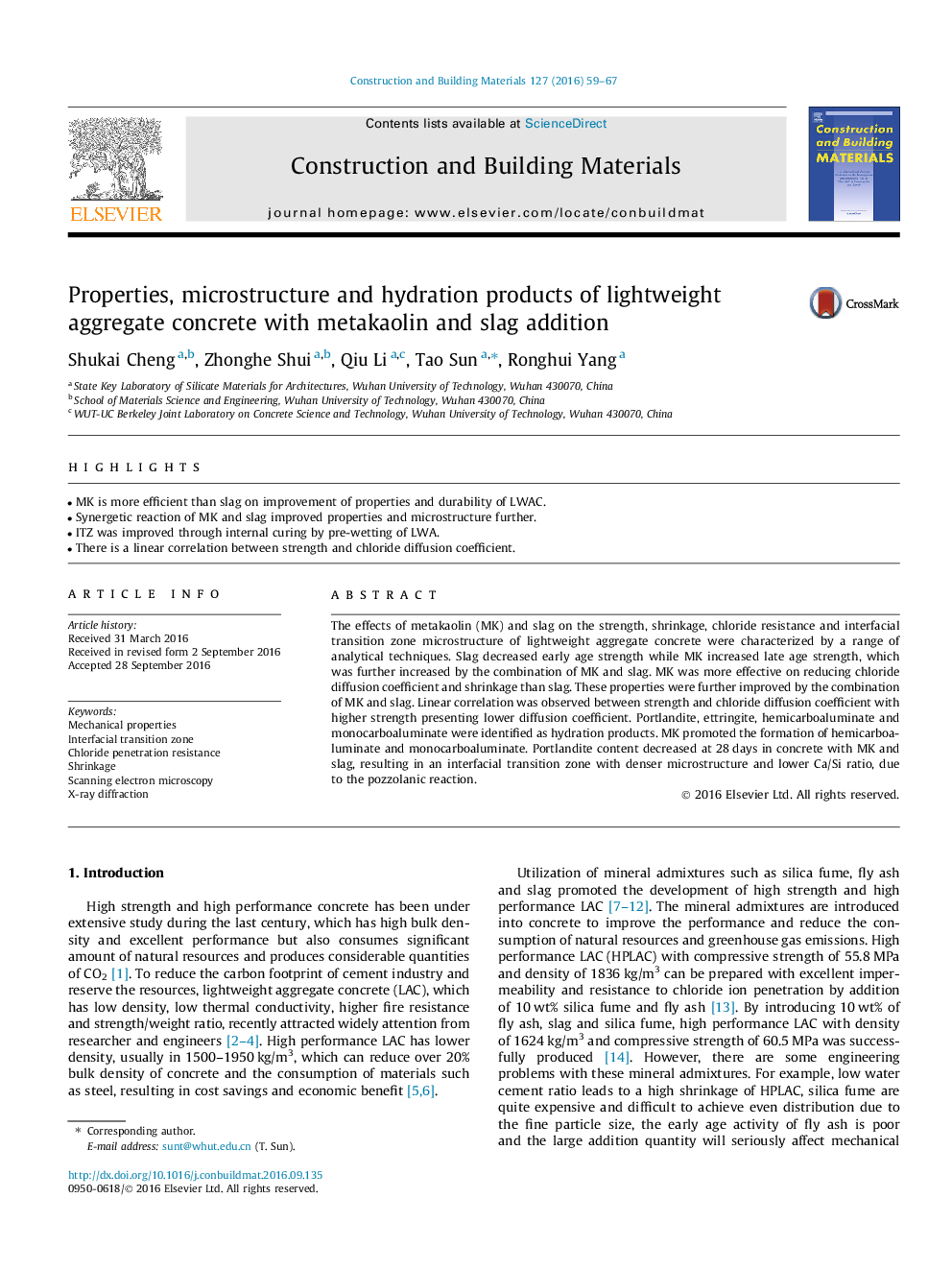| Article ID | Journal | Published Year | Pages | File Type |
|---|---|---|---|---|
| 4913924 | Construction and Building Materials | 2016 | 9 Pages |
Abstract
The effects of metakaolin (MK) and slag on the strength, shrinkage, chloride resistance and interfacial transition zone microstructure of lightweight aggregate concrete were characterized by a range of analytical techniques. Slag decreased early age strength while MK increased late age strength, which was further increased by the combination of MK and slag. MK was more effective on reducing chloride diffusion coefficient and shrinkage than slag. These properties were further improved by the combination of MK and slag. Linear correlation was observed between strength and chloride diffusion coefficient with higher strength presenting lower diffusion coefficient. Portlandite, ettringite, hemicarboaluminate and monocarboaluminate were identified as hydration products. MK promoted the formation of hemicarboaluminate and monocarboaluminate. Portlandite content decreased at 28Â days in concrete with MK and slag, resulting in an interfacial transition zone with denser microstructure and lower Ca/Si ratio, due to the pozzolanic reaction.
Keywords
Related Topics
Physical Sciences and Engineering
Engineering
Civil and Structural Engineering
Authors
Shukai Cheng, Zhonghe Shui, Qiu Li, Tao Sun, Ronghui Yang,
